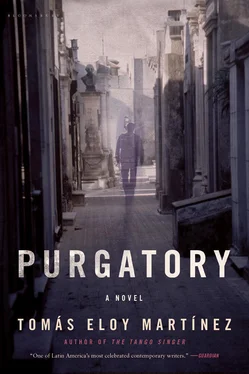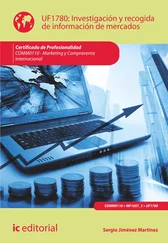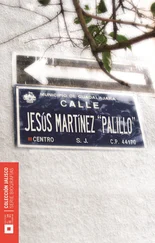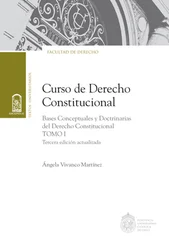‘You’re free to go, kid,’ he said. ‘Round here, rich people always land on their feet. Your parents are waiting for you outside.’
She was blindfolded and someone took her by the arm and led her across what felt like a damp courtyard to a room that smelled of sweaty clothes. Before closing the door he ordered her to count to twenty before taking off the blindfold. When her eyes adjusted to the dim light that flattened everything, she could make out a small sofa, a wooden desk, a few chairs. On the walls hung coats of arms, a photo of the Eel, a portrait of General San Martín. For no apparent reason, a memory buzzed in her brain like a maddening bluebottle, a phrase she had heard for the first time in primary school: the battle, the treaties, the obligatory hero . All across the country obligatory heroes were multiplying like saints in the Catholic Church. For every battle never waged, a new hero was created; for every miracle never performed a new saint was venerated. The battle, the saints, the obligatory hero .
A door opened behind her letting in a sudden burst of light and her mother’s bird-like voice.
‘Emilia, hija ! Just look at the terrible mess Simón has got you mixed up in.’
Reluctantly, she allowed herself to be hugged. She had always taken comfort in her mother’s warmth but she was shocked by this accusation against her husband.
‘It’s not Simón’s fault, he’s as much a victim of this mess as me. Where is he? I want to see him.’
‘You can’t see him like that,’ her mother said, ‘you look a fright. Go and get yourself cleaned up. We brought you some clean clothes.’
In the bathroom, the shelves groaned under the weight of shaving equipment and imported perfumes. The blouse and the bra her parents had brought from Buenos Aires were her sister Chela’s and a little too big for her. Her mother had been right, she did look a sight — her face was haggard, she had deep bags under her eyes, her hair was greasy and dishevelled. She did her best to make herself presentable, but there was not much she could do. In the room next door, a voice she didn’t recognise was making abject apologies to her father.
‘Two days, Dr Dupuy, yes, I know, it’s unforgivable. Almost all our men were out on patrol and the officers here at headquarters are terribly ignorant. They work twenty hours straight. They’re so exhausted they don’t know good from bad when they see it. It was late at night when your daughter was brought in and there was no duty officer. If you want, we’ll look into the matter, get to the bottom of this, doesn’t matter whose head rolls.’
‘Tell General Bissio I want to see him,’ her father demanded.
The general too apologised profusely, though only by telephone. He was in the mountains trailing a band of guerrillas, he explained, and did not want to keep Dr Dupuy and his family waiting in this inhospitable barracks with thieves and whores. He ordered that Señora Cardoso be shown the prison register proving that Simón had been released two hours earlier, at 8 a.m.
The father patted his daughter’s waist then moved away. It had been this way since her adolescence. The vague gesture of affection made Emilia feel tainted. She read the list of items that had been returned to Simón: a Citizen wristwatch; a wedding ring; a pack of Jockey Club cigarettes; a brown leather bag; 27,000 pesos in thousand-peso bills; an Automobile Club ID card; a 1:5,000 scale map of the southern section of the province.
Dr Dupuy had tickets for the four o’clock flight to Buenos Aires, but Emilia did not want to leave immediately. Simón, she insisted, was bound to turn up at any moment. Her father headed off to the airport where he would wait in the restaurant while she and her mother went to check whether the rented jeep had been returned. Yes, they were told, it had been returned the previous day by a soldier. Another soldier had picked up Simón’s suitcase from the hotel where they had spent their one, brief, night together. The bill had been paid, though no one at the hotel could remember by whom. The concierge and the girls working on the reception desk were not the same. It felt as though the past was retreating, leaving no trace, as though life was suspended in a continuous present where things happened without cause and effect.
They got to the airport just in time for the four o’clock flight. Simón was probably waiting for her in Buenos Aires, Emilia’s mother told her, where else could he be? ‘But then why doesn’t he answer the phone?’ asked Emilia, who had been calling the San Telmo apartment every fifteen minutes. ‘He probably took the bus back,’ her mother replied, ‘it’s a twenty-hour journey, he won’t get there until tomorrow morning.’ ‘But without leaving a message, without asking after me? That’s not like him,’ said Emilia. ‘Fear changes people, hija ,’ her father observed. ‘If he’s afraid, then by now he’s running away from everything, even himself.’ It was only as they boarded the plane that Emilia realised her father had not bought a fourth ticket. She thought it best to say nothing and spent the next two hours staring at the clouds through the window.
Years later, when Simón still had not reappeared, she read an article in Gente that said Argentinian husbands often disappeared suddenly, without giving any explanation. They suffer from Wakefield’s syndrome, a psychoanalyst explained, an allusion to Nathaniel Hawthorne’s short story in which an upstanding London gentleman leaves his wife one day for no reason, moving to a house one street away from where he watches her go about her day-to-day routine until he grows old. Emilia knew in her heart that Simón was not like that; he would come back to her as soon as he could.
At the time, thousands of people disappeared for no apparent reason. Ambassadors disappeared, the lovers of captains and admirals, the owners of businesses coveted by the comandantes . Workers disappeared from their factory gates; farmers from their fields, leaving tractors running; dead men from the graves in which they had been buried only the day before. Children disappeared from their mothers’ wombs and mothers from the children’s memories. The sick who arrived in hospital at midnight had disappeared by morning. Frantic mothers rushed out of supermarkets searching for children who had slipped through black holes between the shelves. Some turned up years later, but they were not the same. They had other names, other parents, a history that was no longer theirs. And it was not only people who disappeared; rivers, lakes, train stations, half-built cities vanished into the air as though they had never existed. The list of things that were no more and those that might have been was infinite.
In an interview with a Japanese journalist, the Eel was forced to address the question of this rash of disappearances. ‘Firstly we would have to verify that what you say existed was where you say it was. Reality can be very treacherous. Lots of people are desperate for attention and they disappear just so people won’t forget them.’ Emilia watched the interview on television, listened as he articulated every syllable, slowly nodding his bald head.
‘A desaparecido is a mystery, he has no substance, he is neither alive nor dead, he does not exist. He is a “disappeared”.’
And as he said he does not exist , he rolled his eyes to heaven.
‘Don’t use that word again,’ he went on, ‘you have no basis for it. It is forbidden to publish it. Let it disappear and be forgotten.’
Emilia left Simón standing in the doorway of Trudy Tuesday and — not letting him out of her sight — crossed the road to pick up her silver Altima from the parking lot at Hammond Atlas. She was not afraid that he would leave again — after all these years it made no sense. ‘I’ll go pick up the car.’ Emilia whispered to him. ‘We’ll go home.’ She did not even need to wait for an answer. On the far side of Route 22 she turned to make sure he was still standing where her senses had left him. He wasn’t there. She saw him walking north, a smudge of light, a haze raised by the afternoon sunshine.
Читать дальше












